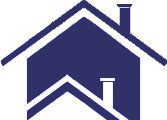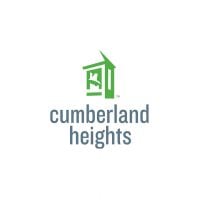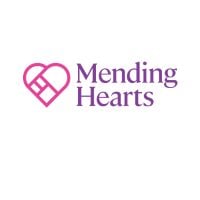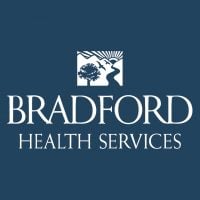
Turning Point Recovery Residence
Drug Rehab Center in Nashville, Tennessee
- Opioid Addiction
- Dual Diagnosis
- Drug Addiction
- Alcoholism
Turning Point Recovery Residence is a comprehensive Addiction Treatment Facility located in Nashville, TN, founded in 1997 that provides tailored services, including Aftercare Support, Drug Rehab, Inpatient, Sober-Living/Half-Way, and Residential Levels of Care, to individuals struggling with addiction and their loved ones to promote a life of sobriety and overall well-being.
Multiple patients have reported Turning Point Recovery Residence as permanently closed.
Research other rehabs in Nashville, Tennessee, or get help finding an open facility.
Our experts will find you an alternative facility.
(888) 674-0062 24/7 Free, Confidential, Expert HotlineAbout Turning Point Recovery Residence in Tennessee
Turning Point Recovery Residence is an addiction treatment facility located in Nashville, TN. Founded in 1997, this facility has been providing specialized care and support for individuals struggling with alcoholism, dual diagnosis, opioid addiction, and drug addiction for over two decades. Their goal is to assist individuals in their journey towards recovery by offering various levels of care, including aftercare support, drug rehab programs, inpatient treatment options, as well as sober-living and halfway house accommodations.
The team at Turning Point Recovery Residence utilizes a range of effective treatment methods to address the needs of their clients. Through evidence-based practices and personalized approaches, they aim to help individuals overcome addiction and find long-term sobriety. The services provided at this facility encompass a holistic approach to treatment that includes therapy sessions focused on trauma resolution and individual counseling to address underlying issues contributing to substance abuse. Additionally, Turning Point offers group therapy sessions where clients can find support from peers facing similar challenges. They also provide education on coping skills and relapse prevention techniques to empower individuals throughout their recovery journey.
Genders
Ages
Modality
Additional
Conditions and Issues Treated
Opioid addiction is a common form of addiction, often caused by prescription drugs that are abused. Addiction is treated by detoxifying the body and following up with therapies to correct behavior and target the root of the problem.
Most opioid addiction begins with patients being prescribed painkillers after an injury or surgery. The body becomes used to the chemicals in these medications and soon no longer responds to their presence. As a result, addicts seek out stronger opiate-based medications like Oxycodone to compensate for the lack of effectiveness.
The most dangerous aspect is that these addictive behaviors often get carried over onto illicit drugs like heroin, which are increasingly potent and result in lower life expectancies.
Levels of Care Offered
This center offers a variety of custom treatment tailored to individual recovery. Currently available are Aftercare Support, Drug Rehab, Inpatient, Residential, Sober-Living / Half-Way, with additional therapies available as listed below.
The inpatient rehab at Turning Point Recovery Residence promises an intense and effective treatment. Inpatient rehabs are particularly recommended for those with a severe addiction to drugs. Detoxing at a rehab center ensures that the patient receives 24-hour medical supervision to ensure the best possible chance of recovery. Medical staff is readily available to intervene in case of withdrawal symptoms or other complications. This is not the case with outpatient treatment, where patients may be discharged after the detoxification process is complete.
Inpatient facilities provide residential and holistic treatment, with access to experienced medical professionals and rehab specialists. This ensures the best possible recovery and is recommended for patients with severe addiction seeking drug treatment.
People who have completed treatment have the opportunity to go to a sober living home. These facilities located in Tennessee, offered by Turning Point Recovery Residence, support a sober living lifestyle. There are often curfews, chores, and therapy sessions enforced to keep residents clean. Career training and other resources are also provided to help recovering addicts return to the outside world. Sober living houses help the patient to smoothly transition from a formal treatment program to a normal life.
SLH (Sober Living Homes) is one of the options of aftercare that helps the patient maintain sobriety by preventing relapses. SLH provides the advantage of residing with a peer group who had similar experiences and share the common goal of staying sober. All the residents need to follow a set of rules or guidelines. These are different for different SLH. They help the patient gradually restore the life skills, interpersonal skills, and various other skills needed to be independent.
Residential treatment programs are those that offer housing and meals in addition to substance abuse treatment. Rehab facilities that offer residential treatment allow patients to focus solely on recovery, in an environment totally separate from their lives. Some rehab centers specialize in short-term residential treatment (a few days to a week or two), while others solely provide treatment on a long-term basis (several weeks to months). Some offer both, and tailor treatment to the patient’s individual requirements.
Aftercare Support in drug rehab is crucial because it helps people stay sober after treatment. The benefits of Aftercare Support are that it provides a pathway that will help people get sober for life. It supports healing at all levels, physical, mental, emotional, and spiritual.
Therapies & Programs
Individualized Treatment is essential because it gives addicts the ability to participate in a program that meets their unique needs. An addict should work with professionals who understand what they’re going through, especially if the addict is actively using.
Trying to find a treatment program that meets your needs can be challenging. It’s even more complicated if you don’t know what kind of treatment you need. Being able to have professionals who are experienced with treating your situation is key to getting sober. Finding the right treatment program for an addict is difficult, but it’s even harder without communicating with those who have experience treating your specific situation.
Couples therapy is beneficial for couples in which at least one partner has a substance use disorder. This type of therapy can help partners improve communication skills, which is an important factor in a healthy relationship. It can also help partners better understand one another so they have a greater understanding of how the other partner may be feeling.
Benefits of couples therapy include:
- Improvement in communication skills
- Increased understanding of the dynamics within a relationship
- Increased sense of support and trust in the relationship
- Better teamwork between partners/increased willingness to listen and work together
- Enhanced tolerance of each other’s shortcomings
- Improved ability to have open, honest communication with each other
Family dysfunction can often be the underlying cause of substance abuse. To get sober, you need to find a different way to cope with the pain in your life. Family therapy can help you and your family deal with old issues that may trigger substance abuse. It will help everyone understand why each member of the family feels and acts the way they do. It can give everyone new tools to manage their emotions so that they don’t want to drink or do drugs.
A person looking for drug recovery should know that group therapy is an essential tool. Group therapy provides accountability and friendship to people with addiction. It is recommended as a lifetime treatment habit. Group therapy occurs in a group setting as opposed to a one-on-one setting. It benefits patients by providing a feeling of support and letting them know they are not alone. Patients at Turning Point Recovery Residence also learn to build trust and understanding and gain perspective through discussions.
Additional Details
Specifics, location, and helpful extra information.
Nashville, Tennessee 37221 Phone Number(615) 332-8654 Meta DetailsUpdated November 25, 2023
Staff Verified
Turning Point Recovery Residence Patient Reviews
There are no reviews yet. Be the first one to write one.
Nashville, Tennessee Addiction Information
Tennessee joins the list of states with an above-average rate for drug and/or alcohol-induced deaths. Most of these deaths are related to opioids, such as prescription opioids. The Volunteer State ranks 2nd highest in the nation for the number of prescriptions given out. The state also ranks at the top for prescription drug-related overdoses.
In Nashville, Tennessee, there were 1,258 drug overdose deaths in 2016. The most common drugs abused in Nashville are alcohol, marijuana, and opioids. In 2016, there were 5,531 people admitted to drug treatment facilities in Nashville. There are many resources available to help those struggling with addiction get treatment and start on the road to recovery. The treatment process can be different for everyone, but it will involve detoxification, counseling, and aftercare.
Treatment in Nearby Cities
- La Follette, TN (158.1 mi.)
- Mountain City, TN (287.0 mi.)
- Celina, TN (86.1 mi.)
- Dresden, TN (100.8 mi.)
- Hohenwald, TN (49.9 mi.)
Centers near Turning Point Recovery Residence



The facility name, logo and brand are the property and registered trademarks of Turning Point Recovery Residence, and are being used for identification and informational purposes only. Use of these names, logos and brands shall not imply endorsement. RehabNow.org is not affiliated with or sponsored by Turning Point Recovery Residence.




